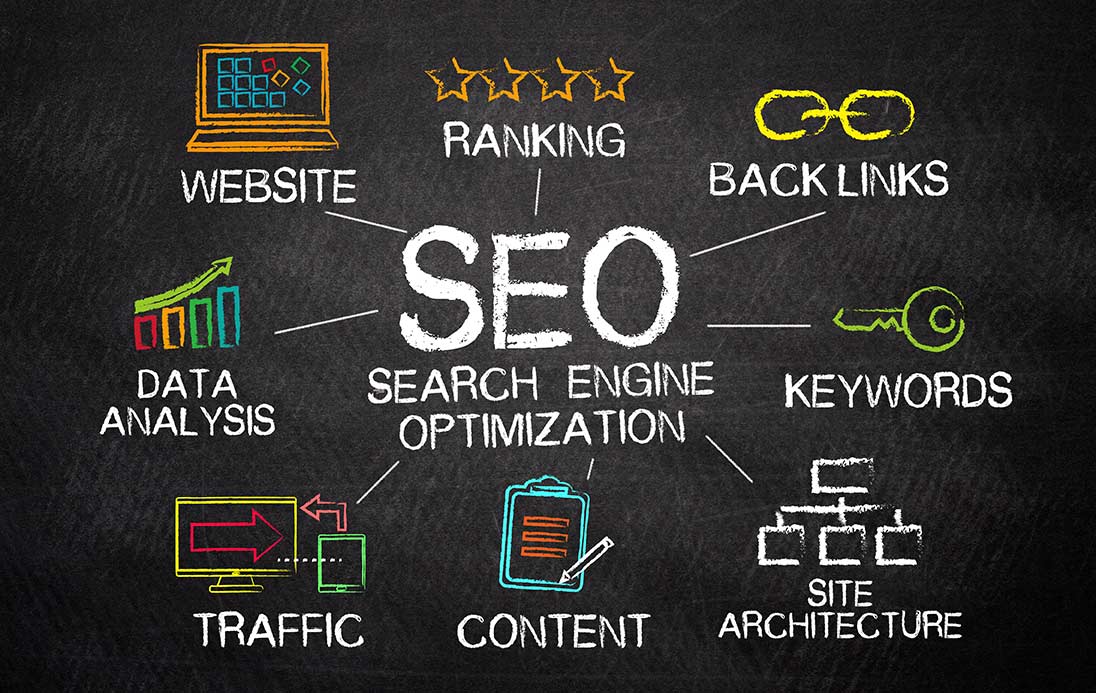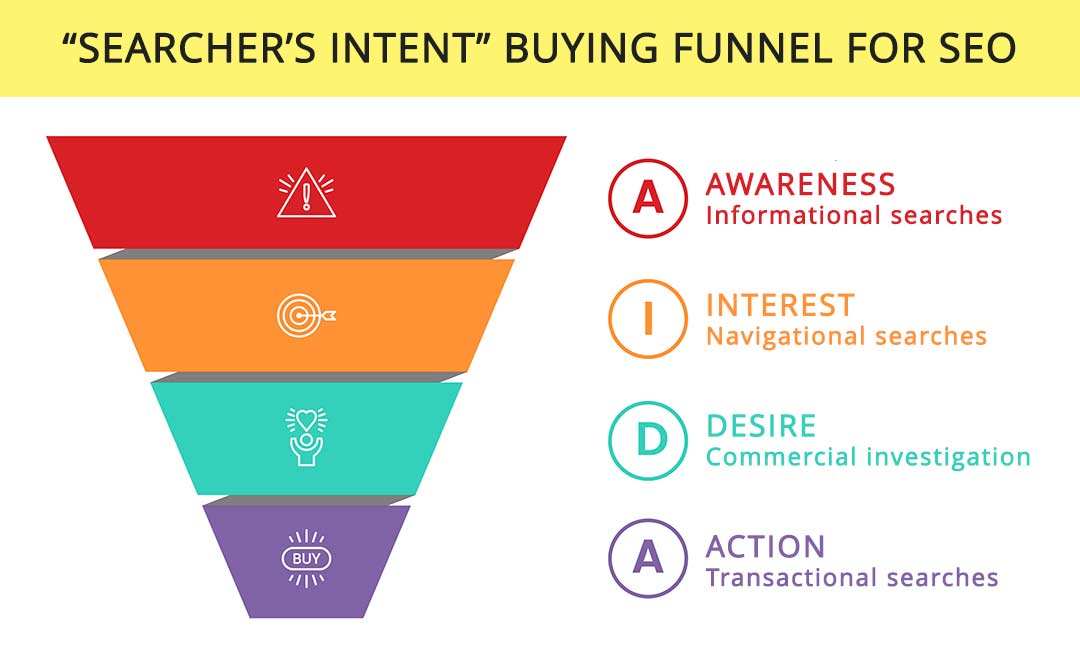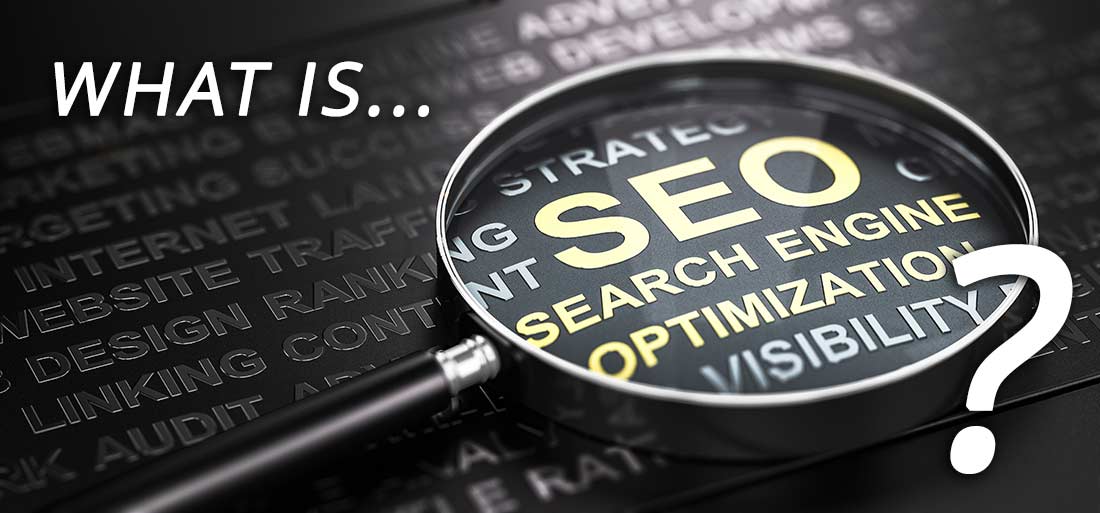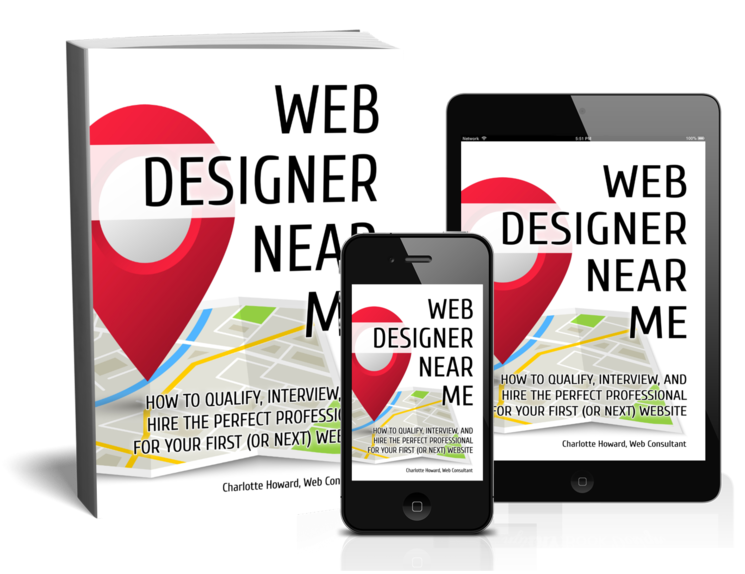What is SEO (like, for real)?
FAQs and answers… according to me. 😏
SEO is short for Search Engine Optimization. The acronym can be used in a variety of ways, such as:
Our website needs SEO.
We do SEO.
We need SEO content.
SEO takes a while.
SEO is a process or activity that focuses on improving a website’s position in the search engines for various phrases. The goal is for a website to rank on page one of Google, for example, for as many relevant keyword phrases as possible, and as far up on page one as possible. If you are competitive like me, I would also add that it would be even better to rank in several places on page one of Google. That’s what I like to do. 😉
Search Engine Optimization is for “organic” results, not paid placements, like Google Ads (PPC).
My name is Charlotte Howard, and I have been doing SEO for more than 17 years, and so, I got some opinions. I also study, and have spent tens of thousands of dollars on continuing education and SEO programs over the years. That being said, here is some quick info that might help you understand SEO a little bit better. It might also help you hire the right SEO service provider if you are looking to improve your website’s rankings and effectiveness.
Here are some SEO phrases I use when I talk to clients about our Search Engine Optimization services:
Foundational SEO
Foundational SEO is what I do when I am building a new website. It is the bedrock upon which a website’s success is built. It is data-driven and involves keyword phrase research, competitive analysis, strategy, planning, site structure, and optimizing everything I can while I am building the website.
One-time SEO
One-time SEO is what I do when a client who already has a website needs it to be optimized. Some website designers/developers do not do SEO, so this one-time service fills the gap. It too, should be data-driven and involve keyword phrase research, competitive analysis, strategy, planning, site structure, and optimizing everything I can to achieve positive movement in the search engines. It might also include a website audit, to see if there is any current “value” that needs to be preserved.
Ongoing SEO
Ongoing SEO is done monthly and usually includes on-page optimizing, content building, and other off-site activities. In most industries, SEO is not a one-and-done endeavor; it’s an ongoing process that requires constant nurturing. Ongoing SEO is a monthly commitment to refining your strategy. It entails incorporating new keyword phrases, adapting to algorithm changes, and staying ahead of industry trends. It’s a dynamic journey towards sustainable online growth. It is a clever, consistent and relentless process that must happen to achieve results in competitive markets.
Onsite (also called on-page) SEO
All SEO work that happens on your website. Optimizing URLs, content, site structure, page speed, meta-data, site growth, etc.
Offsite SEO
All SEO activities that happen off your site. Google Maps, Google Business Profile, social media accounts, other websites (back-linking), reviews, etc.
Local SEO
All optimizing activites that are performed to get your site to rank for location-specific terms.
Technical SEO
Technical SEO is the process of optimizing your website to help search engines find, crawl, understand, and index your pages to improve rankings.
Intuitive SEO (Did I make this term up?)
This is when a website is optimized based on the content it already has, and/or what the client believes. It is not data-driven. It is guessing, or just winging it (and sometimes this is fine).
SEO Audit
An SEO audit is the process of evaluating how well your website is optimized for search engines. It identifies errors that may be preventing your site from ranking well and opportunities that can help you gain more visibility. (SEMrush)
Traffic
Traffic = people. What your website needs is quality traffic (not just any traffic). So, if your website is getting good traffic but no leads or sales, then there is a problem. It could be that you are targeting the wrong keywords or that your website doesn’t convert. A consultant (like me) can help you figure this out. Read more about Website Audiences here ⇒
Bounce Rate
Google pays attention to Bounce Rate, which is when a person lands on your website from a search and then leaves pretty soon after by either closing the page or hitting the back button. Ideally, your web pages have low bounce rates and high dwell times. Dwell Time is when a user clicks on your listing in the SERPs, stays a while, scrolls, clicks around, reads, watches, etc., and otherwise “consumes” your content.
SERPs
Short for Search Engine Results Pages.
What is Keyword Phrase Research?
Keyword Phrase Research is the process of identifying and analyzing the business potential of relevant phrases that your ideal clients/customers are typing into the search engines. This research can determine and evaluate:
- Traffic volume
- Phrase variations
- Difficulty levels
- Searcher’s intent
- Competition
- PPC value
- Trends
Effective keyword research and implementation are the cornerstones of ensuring your content’s alignment with relevant search queries. By seamlessly (and naturally) integrating these keywords throughout your content and meta tags, you amplify your site’s discoverability in the search engines.
Keyword phrase research drives SEO and impacts every SEO decision and task that is performed.
What is Competitive Intelligence?
Competitive Intelligence is the process of evaluating your online competitors. Specifically, you can discover what keyword phrases they are ranking for, how well-optimized their content is, how sophisticated their SEO is, and if there are any opportunities you can exploit. You want to find out what your competitors are doing well, so you can do it even better. You also want to see where they are vulnerable. This helps you decide what you should do to gain a competitive edge. It’s like spying (not ashamed 😄), and it’s an essential component of SEO.

Why optimize?
Most (but not all) businesses should optimize their websites for organic search simply because there are paying customers using search engines to find you.
As a business owner, you should ask yourself, “Where are my people?”. If you think they are in Google, then you should optimize.
If you find yourself saying, “Why am I not on page one of Google?” then you should optimize.
If you hear yourself talking about “website traffic,” you should optimize.
If you want to make more money, you should optimize.
SEO for Social Sharing
Another reason to optimize your content is to improve social sharing. When a person visits your site and wants to share your content to their social feed of choice, sometimes the meta-data, page names, or titles are what gets shared. So, performing at least a one-time SEO run through your website is ideal to improve (optimize) the sharing experience.

Who should optimize?
If you think your ideal client or customer is searching for your products, services, experiences, solutions, or information in Google (and other search engines), your website should be optimized. You should perform research to confirm this.
If you want your website to generate more leads and revenue, you should optimize.
What is the difference between Data-driven SEO and Intuitive SEO?
Data-driven SEO provides focus, strategy, and intention, and informs many website content and structural decisions. It is based on keyword phrase research, real numbers, and analysis.
Intuitive SEO is like working blind. The actual SEO tasks are similar, but the effectiveness of the work might be unknown. It is not research-based, and it does not use data to guide SEO activities.
Research will tell you how much SEO work needs to be done for each keyword phrase and how long it might take to see results.
Every keyword phrase has a different competitive landscape. Managing your expectations is a critical component of SEO and keyword phrase research, which is why data-driven SEO usually outperforms Intuitive SEO.
What can be optimized on a website?
- URLs (permalinks)
- Content
- Images
- Headers and sub-headers
- Navigation and structure
- Links
- Meta-data
- Speed
Does SEO really work?
ABSOLUTELY YES!
Here are some statistics from AHREFS.com:
- 68% of online experiences begin with a search engine.
- 0.63% of Google searchers click on results from the second page.
- 53.3% of all website traffic comes from organic search.
- 92.96% of global traffic comes from Google Search, Google Images, and Google Maps.
- 90.63% of web pages get no organic search traffic from Google.
- SEO drives 1,000%+ more traffic than organic social media.
- 60% of marketers say that inbound (SEO, blog content, etc.) is their highest quality source of leads.
- SEO leads have a 14.6% close rate.
How to track SEO efforts
- Connect statistics programs, like Google Analytics and Google Search Console
- Create special offers
- Use landing pages
- Call tracking
- Ask your customers how they found you
Set benchmarks before you optimize to track your rankings over time and watch KPIs to measure your success.
How long does SEO take?
Each keyword phrase has a different competitive landscape, which affects its difficulty level.
A short phrase with a lot of competition will take longer to rank for and require more SEO effort.
A longer keyword phrase (long-tail) might have less traffic, but getting to page one of Google will be easier and faster.
Some keyword phrases are saturated, which may make it impossible to get to page one of Google no matter what you try. (You will have to do PPC to solve this problem.)
Some phrases have zero traffic. No one is typing it into the search engines. Spending your resources (time and money) optimizing your website for these terms doesn’t make sense.
Some phrases are seasonal, which requires planning and may explain traffic fluctuations.
DIFFICULT keyword phrases take more time, need more strategic content, and cost more money (assuming you are paying an SEO expert).
EASY (or easier) keyword phrases take less time to rank, need less content, and are therefore cheaper.
Research will help you understand how long it will take to see results and achieve your goals. It helps you choose precisely the best keyword phrases for your objectives, both short and long-term.
Determining Searcher’s Intent
Searcher’s intent, in the context of SEO (Search Engine Optimization), refers to the specific goal or purpose that an online user has when entering a search query into a search engine.
Understanding searcher’s intent is fundamental for SEO as it enables you to create focused content that optimizes your website in a way that aligns with what users are actually looking for.
So the question is, where is the user in their buying journey?
If they are at the beginning (TOFU – top of funnel), they are curious and looking for general information. These keyword phrases are short, have broad meanings, and have a low ROI. This is where you might be educating a prospective customer and positioning yourself as an expert.
Further along in the journey (MOFU – middle of funnel), a user is refining their search terms. The phrases are getting longer. They may start comparing information and offers and figuring out who they can trust, or who has the best product or solution.
At the end of their search engine journey (BOFU – bottom of funnel), they have made a decision to buy. These are commercial terms. These phrases have the highest ROI.
By understanding what a user wants – whether it is seeking information, making a purchase, or looking for a specific brand or website, you can tailor your SEO strategies to provide the most relevant and valuable results.
The goal is to improve the visibility and ranking of your web pages in search engine results pages (SERPs) and increase your revenue.
Creating and optimizing content for all stages of the customer journey builds your audience, establishes trust, and positions you for the sale.

How to choose between SEO and PPC
Both SEO and PPC are excellent ways to get people to your website. They both help your business show up on page one of Google. SEO however has some staying power. It lasts. PPC is like a faucet. You turn it on (by paying) and when you turn it off, your listing is gone. It is not a bad idea to do both.
Can I “set it and forget it?”
Not really. Not these days. Your website should be growing and changing over time, like any business. Google rewards websites that are “alive.” Static websites will lose their placements in the search engines over time to more active, relevant websites.
Also, the competitive landscape of each keyword phrase is always changing. Business owners (your competition) become more sophisticated, SEO techniques become commonplace, and trends come and go.
Ideally, SEO should be ongoing to see the best results for your business. You want your web pages to show up on page one of Google for as many phrases as possible, and you want to stay there.
What is SEO Domination?
Yes. I made this up. I am a competitive person, and this is how I think. To me, dominating search is when you are all over pages one and two of Google. Your business shows up in the organic search results, has rich snippets, is on the map, in the PAA section, in directories, on social pages, in the paid ads sections, in Google images, YouTube videos, etc…
So, if your content (no matter where it is, on or off-site) takes 2, 3, 4, or even more spots for the same keyword phrase, those are spaces your competitors do not have.
…and that makes me happy. 😍
Shouldn’t every business do SEO?
No. If your business has other sources of customers and leads, then SEO may not be right for you.
If your “people” are not using Google, pass on SEO.
If you are not looking to grow your business and are satisfied with the status quo, skip investing in SEO.
If your market is saturated and there is nothing unique about your products or services, don’t waste your marketing dollars on SEO.
For example, if you are a jewelry designer, and there is nothing special about your jewelry, it is not very expensive, and you are not famous, I would not expect SEO to bring you a lot of business from the search engines. However, I would do basic on-page optimization for social sharing. Building your audience and marketing to them on social media is a great idea. Email Marketing would also work really well. SEO – not so much.
SEO is not the only online marketing game in town… I will not sell SEO to a client if I don’t think it’s a good fit.
Let’s evaluate this post from an SEO perspective.
Did I perform keyword phrase research first? No. I didn’t need to or want to. I am writing from my 17 years of experience only (Intuitive SEO).
Am I expecting this SEO article to rank well? Again no. SEO is a one-word keyphrase. The market is completely saturated. This post will never rank for the term “SEO.” However, because this article is soooo long (3000 words or so), it may show up in the search engines for other, longer terms that are less competitive. So, I do not expect this post to crush it in Google, but I still might get some traffic from it over time. (I am managing my expectations here…)
The purpose of this article is to inform and demonstrate my expertise, not to bring my website traffic from the search engines. Not every page or post on your website has to rank. I can drive people to this page via my social media accounts, my email campaigns, or through paid ads. People who are on my website from other sources can navigate to this page to learn more. The information is still valuable.
This post has another benefit, though. It grew my website. I regularly add content to my site, which Google “likes.” It adds credibility and signals to Google that I am a serious business. It adds to my “authority” and will help my site’s rankings overall.
This post can also save me time. If a visitor (a possible new client) reads this page, then we might have a common understanding of terms, processes, and expectations. This will shorten the amount of time I need to educate the person during a sales call. If I have a client who wants to know more about SEO, I can send them to this page before scheduling an appointment.
If you have read this whole rambling post… wow… I’m impressed. You deserve a 🎁. I want you as a client. Please get in touch so we can get some serious SEO work done and grow your business.
Are you leaving money on the table?
In summary, mastering the art of SEO for your business is no longer an option but a necessity in today’s digital marketing world. It’s the key to unlocking your online potential and reaching a broader audience. If you’re ready to take your website to the next level and drive more traffic, leads, and conversions, it’s time to partner with a Phoenix SEO expert. Don’t leave money on the table! Contact us today to explore our comprehensive SEO services and embark on a journey to online success.
Why choose Accelerated Web Systems for your SEO?
✔️ We believe in nuance, alignment, and consistent, relentless work. You are not just a number with us.
✔️ We dive deep into your unique business proposition, your ideal client persona, and your revenue goals.
✔️ We evaluate your current situation in the search engines from many angles to establish a benchmark before we start. Keywords, competition, reviews, google properties, website speed, and website conversion rates all play a part in a successful SEO campaign.
✔️ We research, strategize, plan, and execute for short and long-term success.
✔️ You can count on our SEO services to be comprehensive, clever, creative, and competitive.


